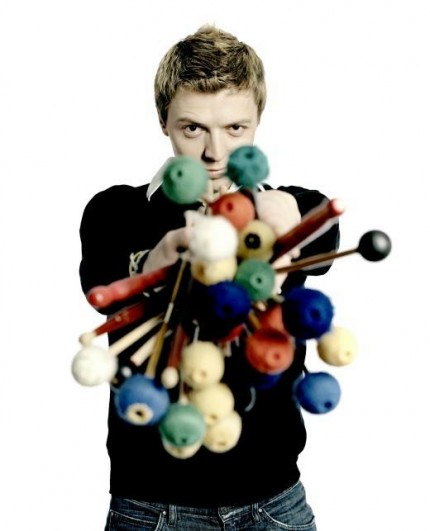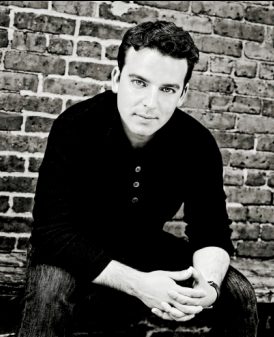Percussion concerto provides mixed rewards at Grant Park

There aren’t many summer music festivals when one can encounter two premieres depicting centuries of geological evolution the same season.
On yet another sweltering evening at the Grant Park Music Festival, the lakefront faithful heard the Chicago debut of Frozen in Time, a percussion concerto by Israeli composer Avner Dorman.
Dorman says that the title of his 2007 work refers to “imaginary snapshots of the Earth’s geological development from prehistoric times to the present day.” Cast in three movements, Frozen in Time depicts each continent at a certain historical moment. The opening section, “Indoafrica,” employs elements of the Indian tala and West African drumming while “Eurasia” is more subdued with its Asian bells and high shimmering vibraphone passages. The contemporary locus of the finale (“The Americas”) is clear in the jazz-flavored syncopation and hard-driving rock drumming for the soloist.
Frozen in Time proved enjoyable enough summer fare if it is ultimately a rather lightweight work. Like many a percussion concerto, Frozen in Time tends to fall back too often on loud and fast drumming for the soloist. The thematic inspiration is slight and, overall, the concerto lacks a distinctive individual voice with the ghost of Leonard Bernstein — On the Waterfront, especially — hovering nearby.
Perhaps most crucially, Dorman doesn’t avail himself of the kaleidoscopic array of timbres and colors available, with the soloist’s arsenal dominated by drums, marimba and vibraphone. There are ample works in the genre that provide music of genuine expressive depth along with instrumental variety and virtuosic opportunities for the soloist (James MacMillan’s Veni, Veni Emmanuel, and the percussion concertos of Christopher Rouse and Joseph Schwantner). This isn’t one of them.
That said, one could hardly ask for more energetic or engaging advocacy than that provided by soloist Martin Grubinger. Smiling broadly, the young Austrian threw himself into the score kicking up plenty of steam on an already steamy night with his powerful and bravura performance, earning a standing ovation from the audience. Conductor James Gaffigan adroitly balanced the orchestra with the soloist and drew strikingly clear textures even in the most uninhibited moments.
One can hardy seem more removed from a wartime Russian winter than the Chicago lakefront Wednesday, yet despite the humidity Gaffigan and the Grant Park Orchestra served up a worthy and well played account of Prokofiev’s Symphony No. 5.

The American conductor, making his festival debut, showed he is his own man, even physically moving his music stand and podium closer to the orchestra before starting. Chief conductor of the Lucerne Symphony Orchestra, Gaffigan showed a sure feel for Prokofiev’s expansive canvas in the ebb and flow of the opening movement, taken at a more flowing tempo than usual. The second movement went with firm momentum and rhythmic acuity, and the enigmatic Adagio — neither tragic nor lyrical but somehow hopeful and expectant — was deftly captured.
Gaffigan’s balancing was impeccable throughout; at climaxes one sometimes wanted more weight and sonorous heft, though that lack may have been due to microphone placement. The finale delivered the optimistic energy — Prokofiev wrote the symphony as the war was turning in the Allies’ favor — and the mechanistic whoosh at the coda made fine impact.
Posted in Performances




